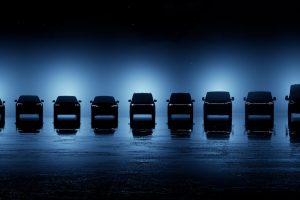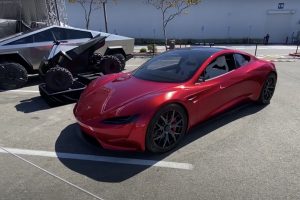It appears that making electric cars that people want to buy is not so easy, after all. This is a hard lesson that is currently being learned by veteran automakers like Volkswagen and Toyota, both of whom are being vastly outperformed in China by Tesla and the country’s homegrown premium EV makers.
China is the world’s largest market for electric cars. As the country embraces sustainable transportation, it is no surprise that carmakers are looking to breach the emerging market. This was one of the reasons why Volkswagen and Toyota, two of the automotive segment’s largest players, entered the Chinese EV market with their respective premium electric cars, the ID.4 Crozz and the C-HR EV.
The VW ID.4 Crozz and the Toyota C-HR EV are priced between 200,000 yuan (US$30,850) and 300,000 yuan, making them a direct competitor to the Made-in-China Tesla Model Y. Both vehicles, however, are proving weak in the Chinese electric vehicle market. Over the first five months of the year, Volkswagen was only able to sell 1,267 ID.4 Crozz SUVs. That’s less than 4% of Tesla’s domestic sales in May alone. Toyota fared even worse, selling only 327 C-HR EVs in the same period, as per a South China Morning Post report.
Tesla sold a total of 33,463 Made-in-China Model 3 and Model Y in May alone, a 30% improvement over its April 2021 numbers. Domestic EV startup NIO, on the other hand, delivered 8,083 in June, a 116% improvement year-over-year. Xpeng, another premium EV maker from China, sold 6,565 units in June. That’s a 617% increase year-over-year.
Peter Chen, an engineer with car component company ZF TRW in Shanghai, noted in a statement to the Post that young drivers in the country are focusing on smart features for premium electric cars. Unfortunately for Volkswagen and Toyota, they simply cannot compete on the same level as Tesla and local EV startups, all of which are extremely focused on technology.
“Sales by the conventional carmakers were disappointing. Young drivers are focusing on the smart features in those high-end EVs. They cannot compete against Tesla and the startups in software development,” Chen said.
This sentiment was echoed by 25-year-old white-collar executive Hou Yan, who noted that driver-assist systems, in-car entertainment features, and range are three key features that she would assess before selecting which electric vehicle to purchase. “In a digitalized world, we no longer care about horsepower. I am just hesitant about whether to buy a Tesla or a NIO or Xpeng,” she said.





